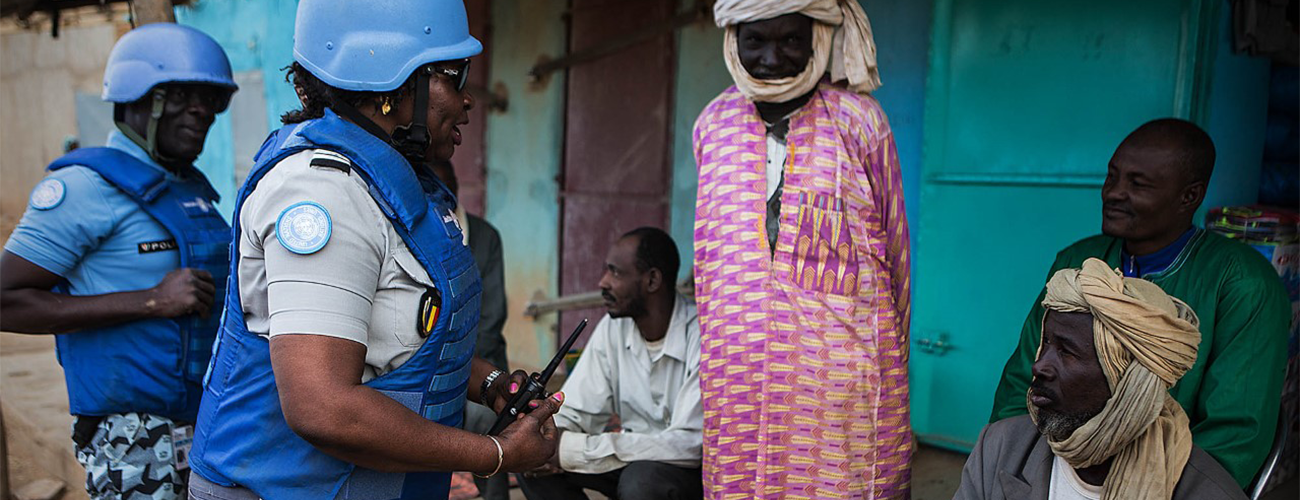UN police patrol in the region of Ménaka in northeastern Mali, January 9, 2019. MINUSMA/Harandane Dicko.
As the practice of the protection of civilians (POC) has evolved in peacekeeping missions, the UN has increasingly focused on “people-centered” approaches. As a result, community engagement has emerged as a core component of POC efforts. By engaging with communities, missions can build trust, gather information, and build a protective environment, ultimately improving their ability to protect civilians.
This paper examines the positive implications and impact of this increased focus on community engagement, as well as the challenges and risks it can pose for communities and missions. It analyzes the community engagement activities of the military, police, and civilian components of the UN missions in the Central African Republic, the Democratic Republic of the Congo, Mali, and South Sudan. The paper concludes with recommendations for these four missions, the UN Secretariat, and UN member states on the Security Council:
- UN member states should continue to refine the language on community engagement in peacekeeping mandates.
- The UN Secretariat should develop more in-depth modules on community engagement in relevant training materials.
- Relevant UN stakeholders should explore how missions’ military personnel can improve their community engagement.
- The UN Secretariat and missions should optimize their use of community liaison assistants.
- The UN Department of Peace Operations should continue to explore where the unarmed civilian protection methodology could complement community engagement by UN missions.








